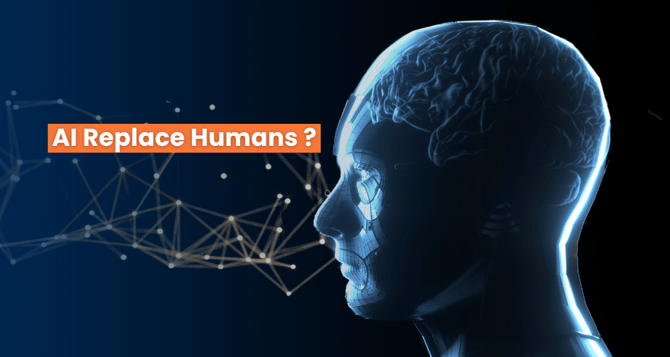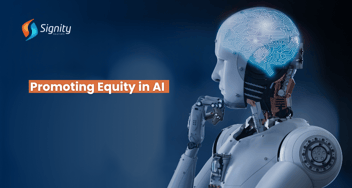Will AI Replace Humans in the Workplace?
In the ongoing evolution of the workforce, this post scrutinizes the role of artificial intelligence in potentially replacing humans at work. Exploring the nuances, challenges, and opportunities, it underscores the need for proactive adaptation to ensure a harmonious integration of AI into our professional lives.

As artificial intelligence (AI) advances rapidly, the debate over AI replacing humans at work intensifies. While AI excels in certain tasks, human skills and creativity remain irreplaceable. This blog delves into jobs AI may replace, areas where human skills shine, and the overall impact of AI development on the job market.
Jobs that AI will Replace
Repetitive Tasks
AI excels at automating repetitive and rule-based tasks, making it highly efficient in industries such as manufacturing, data entry, and routine customer service. Jobs that involve monotonous activities are at risk of being automated by AI systems, leading to increased efficiency and cost savings for businesses.
Routine Information Processing
AI algorithms are proficient at processing vast amounts of data and making decisions based on predefined criteria. This makes them suitable for jobs involving routine information processing, such as financial analysis, data interpretation, and simple decision-making tasks.
Predictable Physical Labor
Jobs that involve predictable physical activities, like routine assembly line work or basic delivery services, may be susceptible to automation through AI-powered machines. This allows companies to streamline their operations and reduce the need for human labor in these specific roles.
In the above-mentioned jobs, AI demonstrates clear advantages in terms of speed, precision, and efficiency, making it a viable option for tasks that are rule-based, repetitive, or data-intensive.
Will AI take Over All Jobs?
While AI is advancing rapidly, there are several categories of jobs where human skills and qualities remain indispensable. Here are some aspects where AI falls short:
Emotional Intelligence
Jobs that require empathy, compassion, and understanding, such as caregiving, counseling, and certain customer service roles, heavily rely on emotional intelligence—something AI currently lacks.
Creativity and Innovation
AI may excel at data analysis and pattern recognition, but it struggles with true creativity and innovation. Professions that involve ideation, artistic expression, and unique problem-solving are likely to remain firmly in the hands of humans.
That said, AI is increasingly taking over more routine roles, such as AI receptionists that now handle front-desk tasks in many offices. It’s a shift that shows how automation is quietly reshaping everyday workplace functions.
Complex Decision-Making
Situations that demand nuanced decision-making, strategic thinking, and the ability to weigh multiple factors simultaneously are challenging for AI. Professions like leadership, strategy development, and high-level management require human cognitive abilities that AI has not yet mastered.
Conclusion
While AI has the potential to replace certain jobs, it is crucial to recognize the limitations of machines and appreciate the unique qualities humans bring to the workforce. Rather than fearing a complete takeover, we should focus on how AI can complement human abilities, automate mundane tasks, and create new opportunities for collaboration and innovation.
As the relationship between AI and humans evolves, adapting and upskilling in areas where machines fall short will be essential for individuals to thrive in the changing job landscape. The future of work will likely involve a harmonious integration of AI and human capabilities, unlocking new possibilities for productivity and progress.


%201-1.webp?width=148&height=74&name=our%20work%20(2)%201-1.webp)


.png?width=344&height=101&name=Mask%20group%20(5).png)









.png?width=352&name=microsofts-recall-feature%20(12).png)







